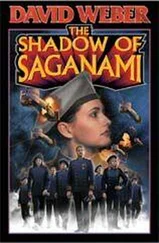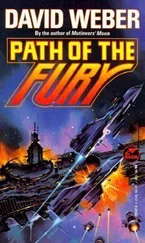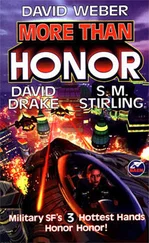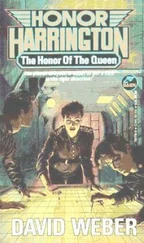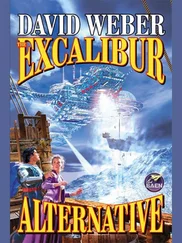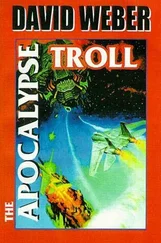David Weber - The Warmasters
Здесь есть возможность читать онлайн «David Weber - The Warmasters» весь текст электронной книги совершенно бесплатно (целиком полную версию без сокращений). В некоторых случаях можно слушать аудио, скачать через торрент в формате fb2 и присутствует краткое содержание. ISBN: , Издательство: Baen Publishing Enterprises, Жанр: Фантастика и фэнтези, на английском языке. Описание произведения, (предисловие) а так же отзывы посетителей доступны на портале библиотеки ЛибКат.
- Название:The Warmasters
- Автор:
- Издательство:Baen Publishing Enterprises
- Жанр:
- Год:неизвестен
- ISBN:0-7434-3534-6
- Рейтинг книги:4 / 5. Голосов: 1
-
Избранное:Добавить в избранное
- Отзывы:
-
Ваша оценка:
- 80
- 1
- 2
- 3
- 4
- 5
The Warmasters: краткое содержание, описание и аннотация
Предлагаем к чтению аннотацию, описание, краткое содержание или предисловие (зависит от того, что написал сам автор книги «The Warmasters»). Если вы не нашли необходимую информацию о книге — напишите в комментариях, мы постараемся отыскать её.
The Warmasters — читать онлайн бесплатно полную книгу (весь текст) целиком
Ниже представлен текст книги, разбитый по страницам. Система сохранения места последней прочитанной страницы, позволяет с удобством читать онлайн бесплатно книгу «The Warmasters», без необходимости каждый раз заново искать на чём Вы остановились. Поставьте закладку, и сможете в любой момент перейти на страницу, на которой закончили чтение.
Интервал:
Закладка:
The grins faded soon enough. After waiting impatiently for the introductions to be completed, Anna's next words were: "Where's the telegraph station?"
Urgent. Must translate Talisman precepts into native tongues also.
Menander fidgeted while she waited for the reply.
"I've got a critical military cargo to haul to the island," he muttered. "Calopodius may not even send an answer."
"He's my husband," came her curt response. "Of course he'll answer me."
Sure enough, the answer came very soon.
Cannot. Is no written native language. Not even alphabet.
After reading it, Anna snorted. "We'll see about that."
You supposedly expert grammar and rhetoric. Invent one.
"You'd best get started on it," mused Belisarius. The general's head turned to the south. "She'll be coming soon."
"Like a tidal bore," added Maurice.
The Iron Triangle
That night, he dreamed of islands again.
First, of Rhodes, where he spent an idle day on his journey to join Belisarius' army while his ship took on supplies.
Some of that time he spent visiting the place where, years before, John of Rhodes had constructed an armaments center. Calopodius' own skills and interests were not inclined in a mechanical direction, but he was still curious enough to want to see the mysterious facility.
But, in truth, there was no longer much there of interest. Just a handful of buildings, vacant now except for livestock. So, after wandering about for a bit, he spent the rest of the day perched on a headland staring at the sea.
It was a peaceful, calm, and solitary day. The last one he would enjoy in his life, thus far.
Then, his dreams took him to the island in the Strait of Hormuz where Belisarius was having a naval base constructed. The general had sent Calopodius over from the mainland where the army was marching its way toward the Indus, in order to help resolve one of the many minor disputes which had erupted between the Romans and Persians who were constructing the facility. Among the members of the small corps of noble couriers who served Belisarius for liaison with the Persians, Calopodius had displayed a great deal of tact as well as verbal aptitude.
It was something of a private joke between him and the general. "I need you to take care of another obstreperous aunt," was the way Belisarius put it.
The task of mediating between the quarrelsome Romans and Persians had been stressful. But Calopodius had enjoyed the boat ride well enough; and, in the end, he had managed to translate Belisarius' blunt words into language flowery enough to slide the command through -- like a knife between unguarded ribs.
Toward the end, his dreams slid into a flashing nightmare image of Bukkur Island. A log, painted to look like a field gun, sent flying by a lucky cannon ball fired by one of the Malwa gunships whose bombardment accompanied that last frenzied assault. The Romans drove off that attack also, in the end. But not before a mortar shell had ripped Calopodius' eyes out of his head.
The last sight he would ever have in his life was of that log, whirling through the air and crushing the skull of a Roman soldier standing in its way. What made the thing a nightmare was that Calopodius could not remember the soldier's name, if he had ever known it. So it all seemed very incomplete, in a way which was too horrible for Calopodius to be able to express clearly to anyone, even himself. Grammar and rhetoric simply collapsed under the coarse reality, just as fragile human bone and brain had collapsed under hurtling wood.
The sound of his aide-de-camp clumping about in the bunker awoke him. The warm little courtesy banished the nightmare, and Calopodius returned to life with a smile.
"How does the place look?" he asked.
Luke snorted. "It's hardly fit for a Melisseni girl. But I imagine it'll do for your wife."
"Soon, now."
"Yes." Calopodius heard Luke lay something on the small table next to the cot. From the slight rustle, he understood that it was another stack of telegrams. Private ones, addressed to him, not army business.
"Any from Anna?"
"No. Just more bills."
Calopodius laughed. "Well, whatever else, she still spends money like a Melisseni. Before she's done, that banker will be the richest man in India."
Beyond a snort, Luke said nothing in response. After a moment, Calopodius' humor faded away, replaced by simple wonder.
"Soon, now. I wonder what she'll be like?"
The Indus
The attack came as a complete surprise. Not to Anna, who simply didn't know enough about war to understand what could be expected and what not, but to her military escort.
"What in the name of God do they think they're doing?" demanded Menander angrily.
He studied the fleet of small boats -- skiffs, really -- pushing out from the southern shore. The skiffs were loaded with Malwa soldiers, along with more than the usual complement of Mahaveda priests and their mahamimamsa "enforcers." The presence of the latter was a sure sign that the Malwa considered this project so near-suicidal that the soldiers needed to be held in a tight rein.
"It's an ambush," explained his pilot, saying aloud the conclusion Menander had already reached. The man pointed to the thick reeds. "The Malwa must have hauled those boats across the desert, hidden them in the reeds, waited for us. We don't keep regular patrols on the south bank, since there's really nothing there to watch for."
Menander's face was tight with exasperation. "But what's the point of it?" For a moment, his eyes moved forward, toward the heavily-shielded bow of the ship where the Victrix's fire-cannon was situated. "We'll burn them up like so many piles of kindling."
But even before he finished the last words, even before he saw the target of the oncoming boats, Menander understood the truth. The fact of it, at least, if not the reasoning.
"Why? They're all dead men, no matter what happens. In the name of God, she's just a woman!"
He didn't wait for an answer, however, before starting to issue his commands. The Victrix began shuddering to a halt. The skiffs were coming swiftly, driven by almost frenzied rowing. It would take the Victrix time to come to a halt and turn around; time to make its way back to protect the barge it was towing.
Time, Menander feared, that he might not have.
"What should we do?" asked Anna. For all the strain in her voice, she was relieved that her words came without stammering. A Melisseni girl could afford to scream with terror; she couldn't. Not any longer.
Grim-faced, Illus glanced around the barge. Other than he and Cottomenes and Abdul, there were only five Roman soldiers on the barge -- and only two of those were armed with muskets. Since Belisarius and Khusrau had driven the Malwa out of the Sind, and established Roman naval supremacy on the Indus with the new steam-powered gunboats, there had been no Malwa attempt to threaten shipping south of the Iron Triangle.
Then his eyes came to rest on the vessel's new feature, and his tight lips creased into something like a smile.
"God bless good officers," he muttered.
He pointed to the top of the cabin amidships, where a shell of thin iron was perched. It was a turret, of sorts, for the odd and ungainly looking "Puckle gun" which Menander had insisted on adding to the barge. The helmeted face and upper body of the gunner was visible, and Illus could see the man beginning to train the weapon on the oncoming canoes.
"Get up there -- now. There's enough room in there for you, and it's the best armored place on the barge." He gave the oncoming Malwa a quick glance. "They've got a few muskets of their own. Won't be able to hit much, not shooting from skiffs moving that quickly -- but keep your head down once you get there."
Читать дальшеИнтервал:
Закладка:
Похожие книги на «The Warmasters»
Представляем Вашему вниманию похожие книги на «The Warmasters» списком для выбора. Мы отобрали схожую по названию и смыслу литературу в надежде предоставить читателям больше вариантов отыскать новые, интересные, ещё непрочитанные произведения.
Обсуждение, отзывы о книге «The Warmasters» и просто собственные мнения читателей. Оставьте ваши комментарии, напишите, что Вы думаете о произведении, его смысле или главных героях. Укажите что конкретно понравилось, а что нет, и почему Вы так считаете.


